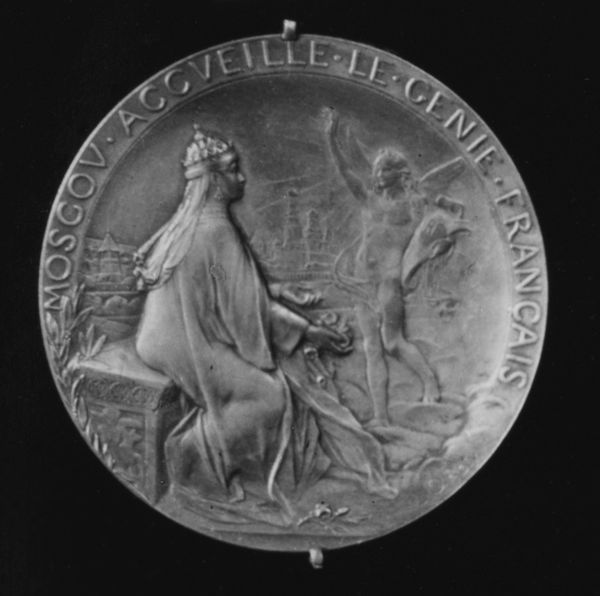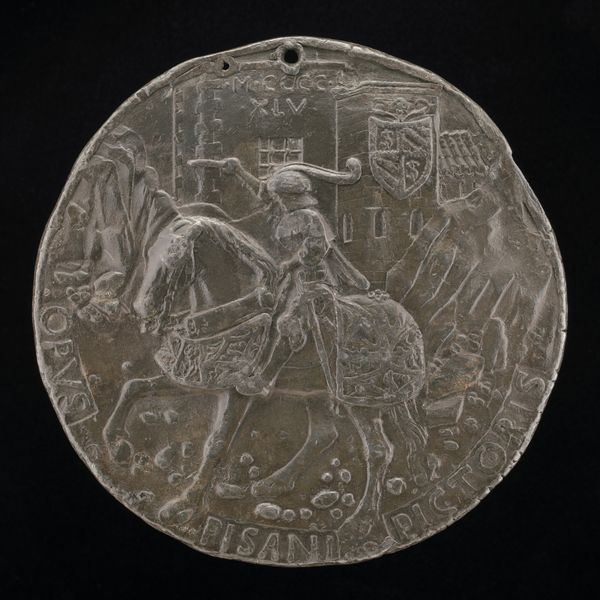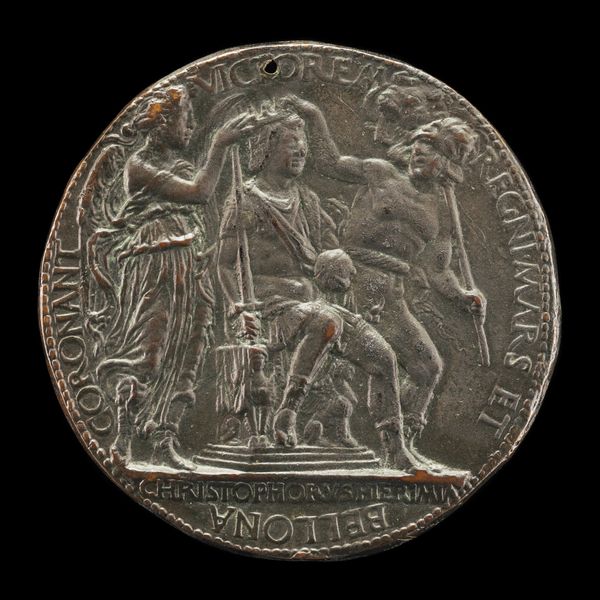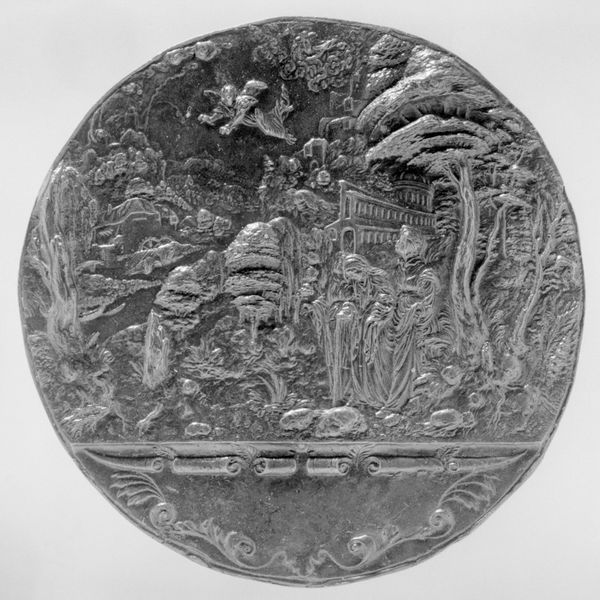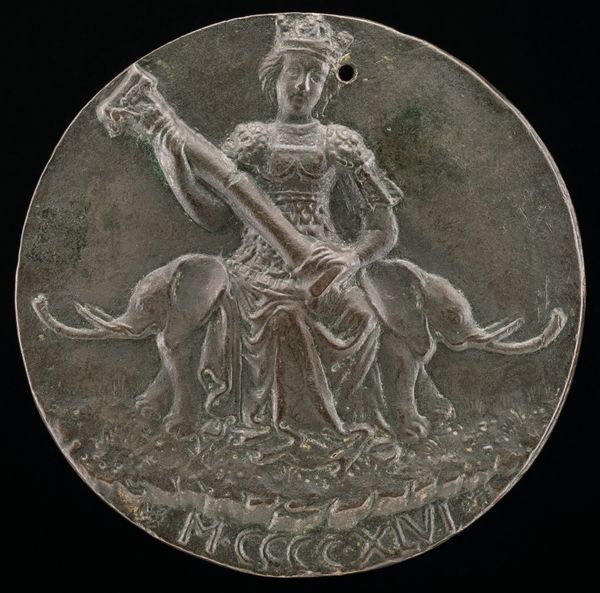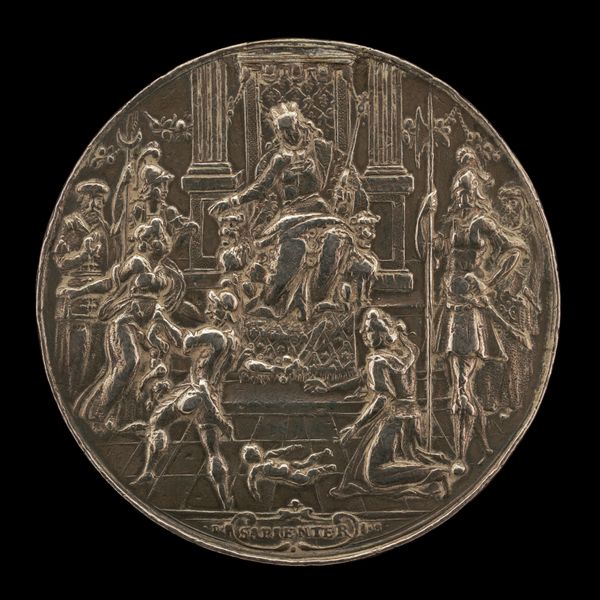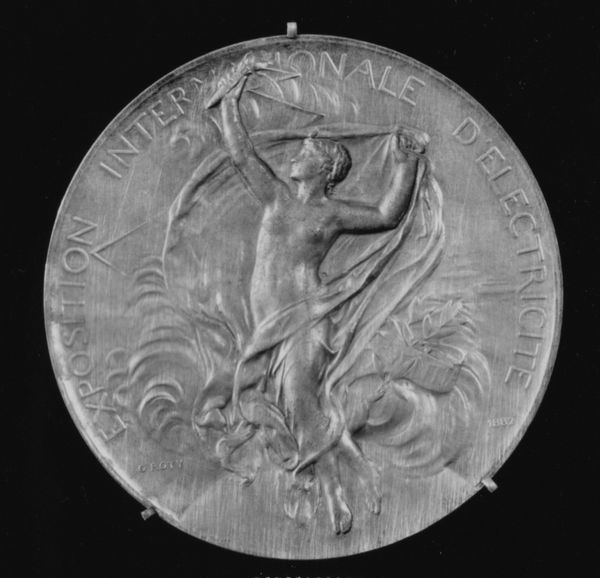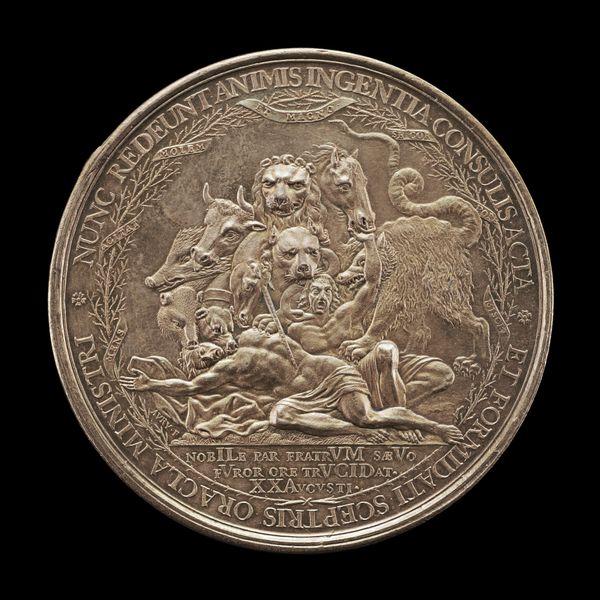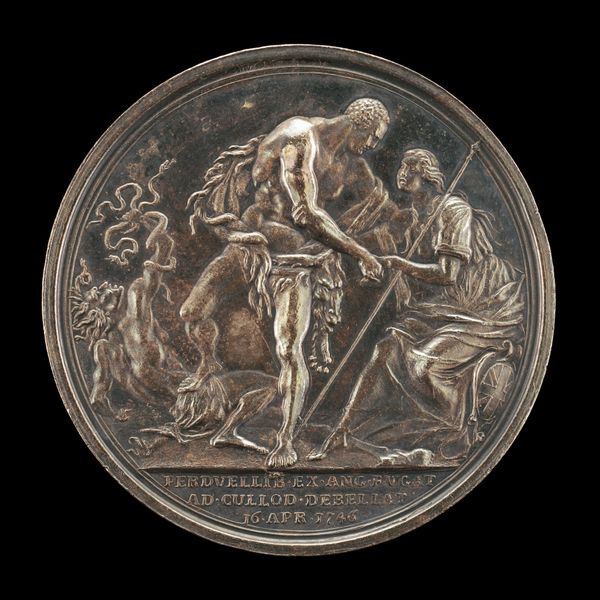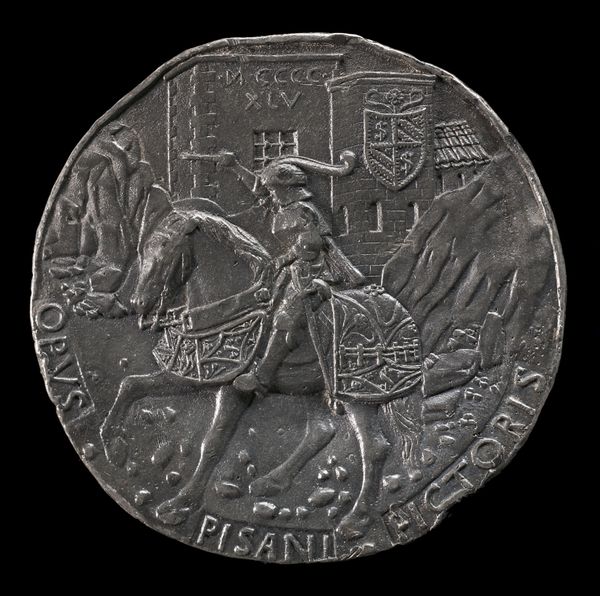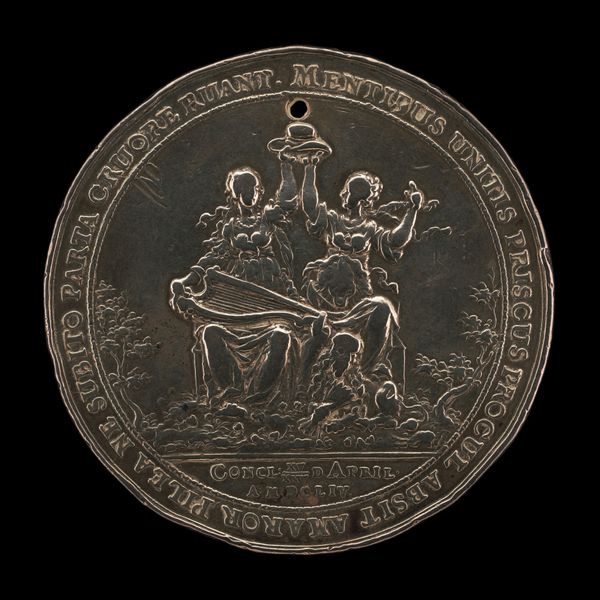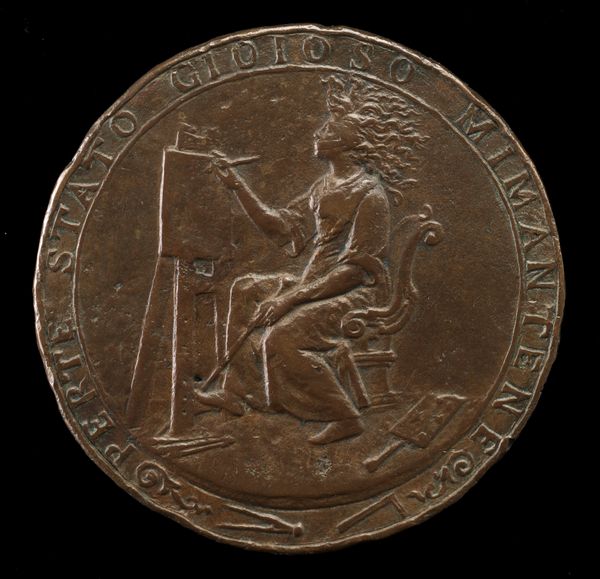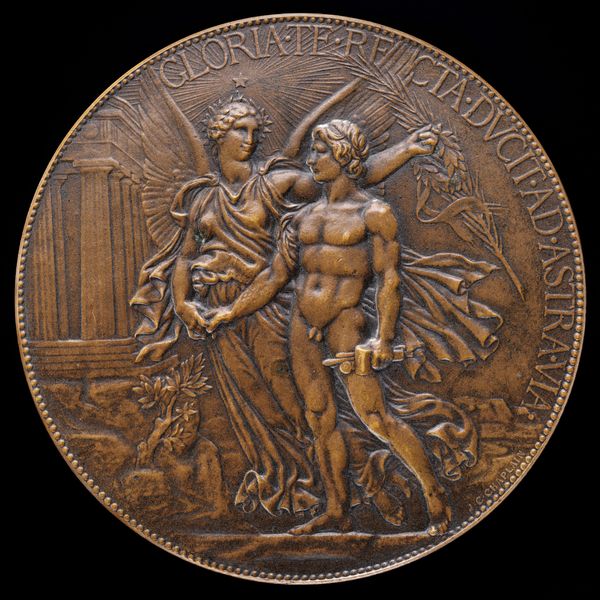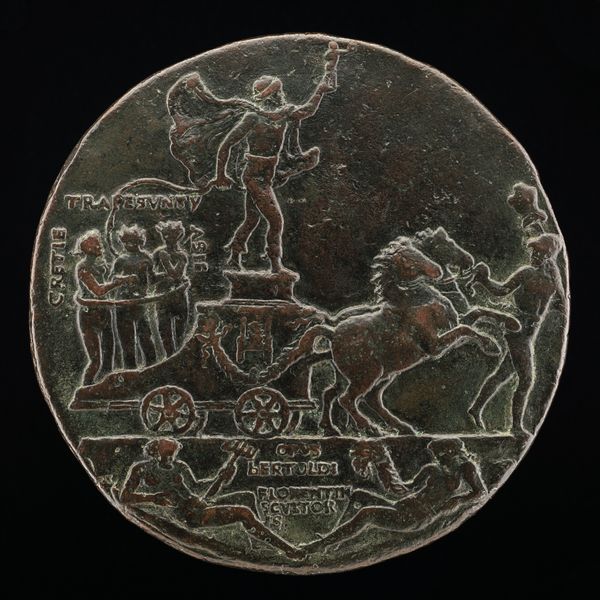
Opening of the Railway Line Between Algiers and Constantine, November 3, 1886 1886
0:00
0:00
relief, bronze, sculpture
#
portrait
#
medal
#
sculpture
#
relief
#
bronze
#
female-nude
#
ancient-mediterranean
#
sculpture
#
history-painting
#
decorative-art
#
realism
#
statue
Dimensions: Diameter: 2 11/16 in. (68 mm)
Copyright: Public Domain
Editor: We’re looking at Louis-Oscar Roty’s bronze relief, "Opening of the Railway Line Between Algiers and Constantine, November 3, 1886." It’s quite a formal scene, and I'm struck by the somewhat classical depiction of the figures, even for something commemorating a modern railway. What’s your take on it? Curator: It’s a fascinating piece because it highlights the complex relationship between progress, colonialism, and artistic representation. While celebrating a modern infrastructural achievement, the artwork does so by utilizing classical allegorical figures. How do these figures, Algeria and Constantine, appear to you? Editor: They appear very... idealized and almost Roman in style. Is Roty perhaps drawing parallels between Roman infrastructure and French advancements in Algeria? Curator: Exactly. The French, like many European colonial powers, often framed their actions as bringing civilization and progress to colonized lands. This piece subtly implies a continuation of a historical imperative – that of imposing order and reaping the benefits of empire. Notice the date inscription and how that fixes this modern achievement to something like ancient greatness. Editor: So, while seemingly commemorating progress, it also serves as a visual justification for colonial presence and domination. Are there other works that exemplify similar trends of legitimization through symbolic or historical visual languages? Curator: Absolutely, the nineteenth century is ripe with examples of this type of justification in official art. What seems like harmless celebration can be loaded with implications about power and control. Editor: That’s really shifted my perspective. I initially saw a somewhat straightforward commemoration, but now it's clear there’s a deeper, politically charged narrative at play. Thanks for illuminating the subtext.
Comments
No comments
Be the first to comment and join the conversation on the ultimate creative platform.
